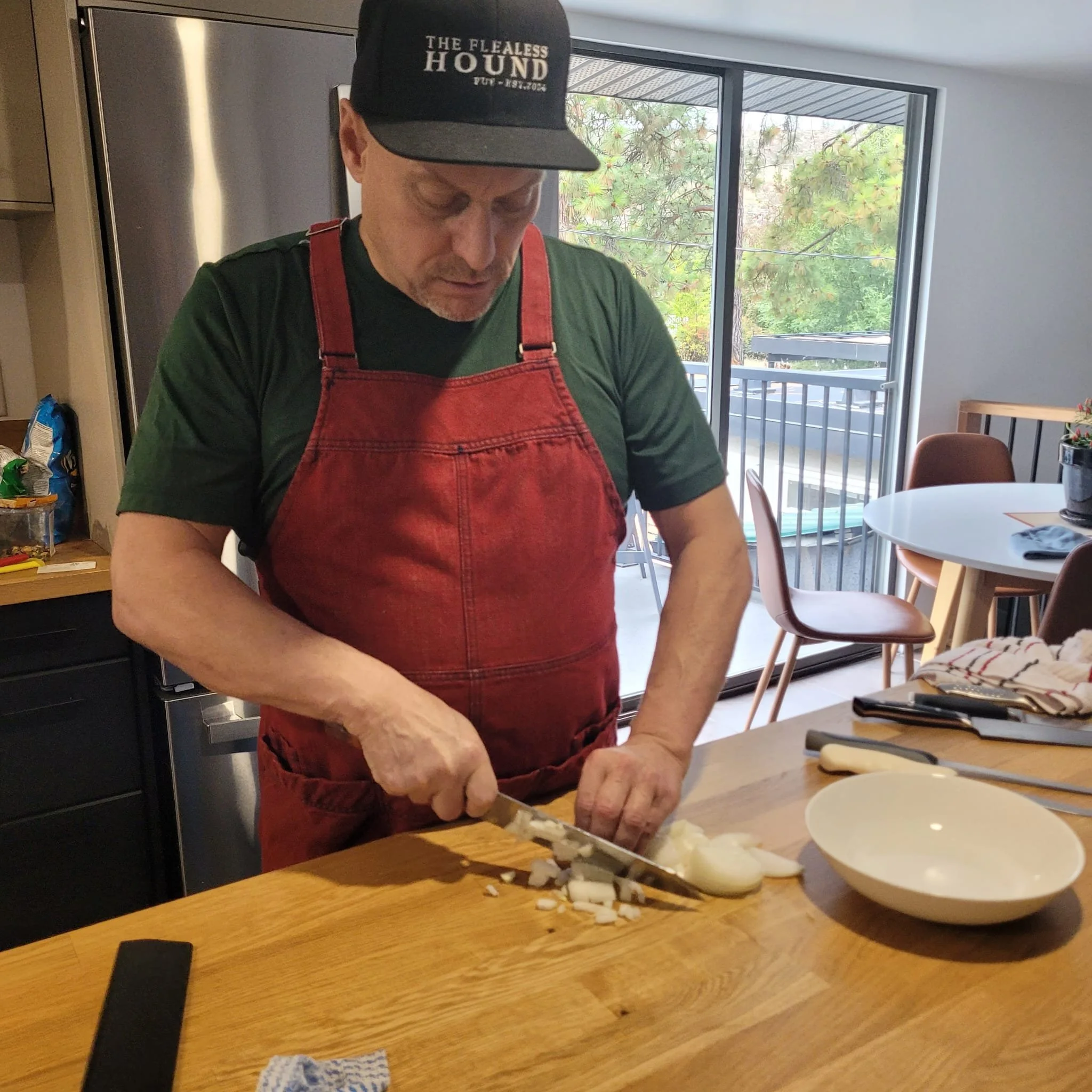Mastering the Art of Knife Skills
Knife skills are an essential aspect of cooking that can greatly impact the outcome of your dishes. Whether you are a novice in the kitchen or a seasoned chef, improving your knife skills can elevate your culinary creations to the next level.
In this blog post, we will explore various techniques to help you become more proficient in handling a knife and cutting ingredients with precision.
Before diving into the world of knife skills, it is important to have the right tools for the job. Different knives are designed for specific tasks, so it is crucial to select the appropriate knife for the job at hand. A chef's knife is a versatile option that can handle a wide range of cutting tasks, while a paring knife is ideal for more delicate work such as peeling and coring fruits and vegetables.
Chef Kevin from the Flealess Hound Pub shows how to pick the right knife for the job.
The foundation of good knife skills lies in mastering the basic cutting techniques. Learning how to properly hold a knife and position your fingers on the blade can help prevent accidents and ensure a more efficient cutting process. Practice slicing, chopping, and dicing various ingredients to develop muscle memory and improve your speed and accuracy.
Once you have mastered the basics, it is time to delve into more advanced cutting techniques such as julienne, brunoise, and dice. Julienne involves cutting ingredients into thin, uniform strips, while brunoise requires finely dicing ingredients into small cubes. Dicing involves cutting ingredients into larger, uniform cubes. These techniques are essential for creating visually appealing dishes and ensuring even cooking.
Chef Kevin demonstrates three cutting techniques.
In addition to honing your cutting skills, it is important to properly maintain your knives to ensure they remain sharp and in good condition. Regularly sharpening your knives with a sharpening stone or honing rod can help maintain their edge and prevent dulling. Proper storage, such as using a knife block or magnetic strip, can also help protect your knives from damage.
Safety should always be a top priority when working with knives. Always keep your fingers tucked in and away from the blade while cutting, and use a cutting board to provide a stable surface for chopping. Avoid distractions while handling a knife and never leave a knife in a sink full of soapy water where it can easily be hidden from view.
Like any skill, mastering knife skills takes practice and patience. Set aside time to practice your cutting techniques regularly, whether it is chopping vegetables for a stir-fry or slicing fruit for a salad. The more you practice, the more confident and proficient you will become in handling a knife.
To further hone your knife skills, experiment with cutting a variety of ingredients, from soft fruits and vegetables to tougher meats and root vegetables. Each ingredient presents its own challenges and requires different cutting techniques, so don't be afraid to try new things and push yourself out of your comfort zone.
If you are serious about improving your knife skills, consider taking a cooking class or workshop that focuses on knife techniques. A professional chef can provide valuable guidance and feedback to help you refine your cutting skills and take them to the next level.
Mastering knife skills is a valuable asset for any home cook or aspiring chef. By honing your cutting techniques, choosing the right tools, and practicing regularly, you can elevate your culinary creations and impress your friends and family with your newfound skills. Remember, practice makes perfect, so don't be afraid to get creative in the kitchen and experiment with different ingredients and cutting techniques.
Learn essential cutting techniques, choose the right tools, and practice regularly to become a master in the kitchen.

